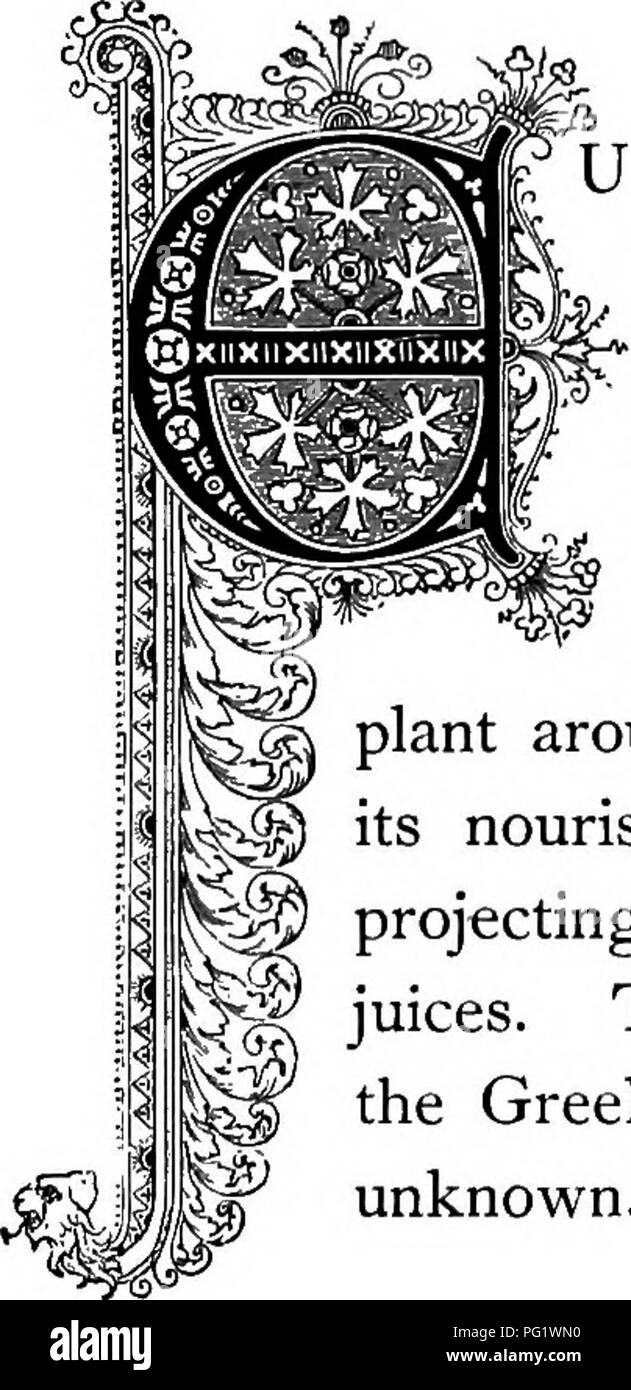. The floral kingdom : its history, sentiment and poetry : A dictionary of more than three hundred plants, with the genera and families to which they belong, and the language of each illustrated with appropriate gems to poetry . Flower language; Flowers in literature. s^ li (Eusnita cpilinuin. Natural Order: Convolvulacece — Convolvulus Family. UROPE is the native seat of the Dodders, which are of several kinds, yet so similar in nature that the description of one gives an idea of all. This plant is an inhabitant of the fields, being destitute of foliage, having a reddish orange stem of a para

Image details
Contributor:
Central Historic Books / Alamy Stock PhotoImage ID:
PG1WN0File size:
7.2 MB (358.7 KB Compressed download)Releases:
Model - no | Property - noDo I need a release?Dimensions:
1102 x 2269 px | 18.7 x 38.4 cm | 7.3 x 15.1 inches | 150dpiMore information:
This image is a public domain image, which means either that copyright has expired in the image or the copyright holder has waived their copyright. Alamy charges you a fee for access to the high resolution copy of the image.
This image could have imperfections as it’s either historical or reportage.
. The floral kingdom : its history, sentiment and poetry : A dictionary of more than three hundred plants, with the genera and families to which they belong, and the language of each illustrated with appropriate gems to poetry . Flower language; Flowers in literature. s^ li (Eusnita cpilinuin. Natural Order: Convolvulacece — Convolvulus Family. UROPE is the native seat of the Dodders, which are of several kinds, yet so similar in nature that the description of one gives an idea of all. This plant is an inhabitant of the fields, being destitute of foliage, having a reddish orange stem of a parasitical nature — that is, having no power of provid- ing nutriment for itself, as it depends upon some neighboring plant around which it twines. The root then decays, when it receives its nourishment from the plant that supports it, by means of small projecting filaments, with which it penetrates them, absorbing their juices. This particular species grows on flax, whence its name, from the Greek e-pi, on, and linon, flax; the origin of the name Cuscuta is unknown. The flowers are a yellowish white.. Y the tears I shed were tongues, yet all too few would be, To tell of all the treachery that thou hast shown to me. —Bryant. T70R vicious natures, when they once begin To take distaste, and purpose no requital. The greater debt they owe, the more they hate. —Thomas May. 'T'HE pioudest of you all Have been beholden to him in his life: Yet none of you would once plead for his life. —Shakespeare. T COULD stand upright Against the tyranny of age and fortune; But the sad weight of such ingratitude Will crush me into earth. —Denham. T HAVE been base; Base ev'n to him from whom I did receive All that a son could to a father give: Behold me punish'd in the self-same kind; Th' ungrateful does a more ungrateful find. —Dryden. T^ISHONOR waits on perfidy. The villain '-' Should blush to think a falsehood; 'tis the crime Of cowards. -C. 'Johnson. QEE how he sets his countenance fo